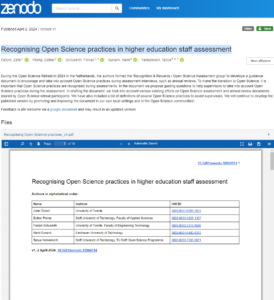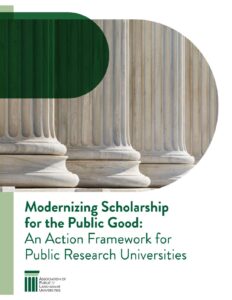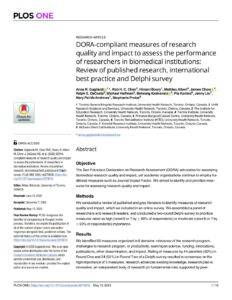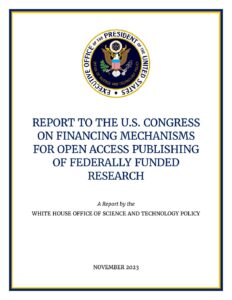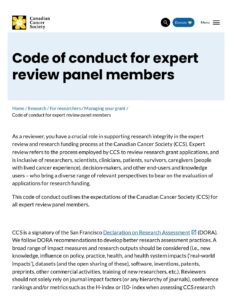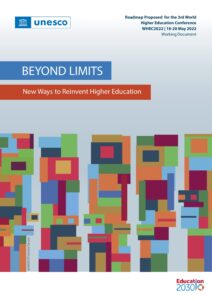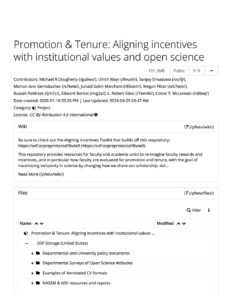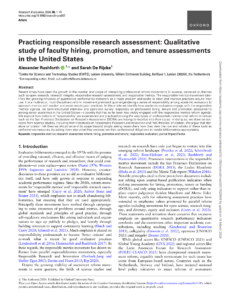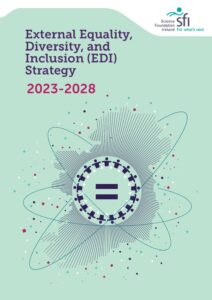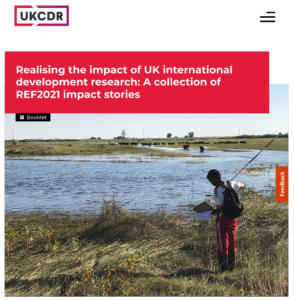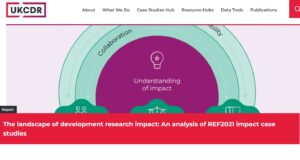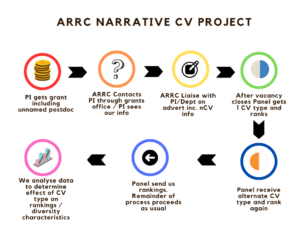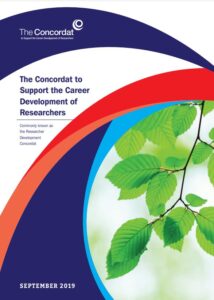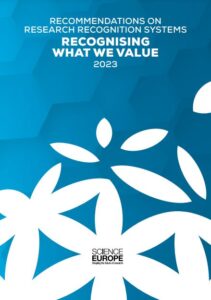A collection of materials to facilitate the development of responsible research and researcher assessment policies and practices.
Search and Filter
Resource type
Intended audience
Good practicesPolicies and guidance
For: FundersResearch institutes
2024
This resource compiles questions about open scholarship that pertain to assessment of research, education, outreach, and leadership. The questions for each section are accompanied by definitions of terms used in the questions and links to resources. The authors note that these questions were developed in the context of assessment practices in The Netherlands, but note…
Good practicesPolicies and guidance
For: FundersResearch institutes
2020
This resource compiles questions about open scholarship that pertain to assessment of research, education, outreach, and leadership. The questions for each section are accompanied by definitions of terms used in the questions and links to resources. The authors note that these questions were developed in the context of assessment practices in The Netherlands, but note…
Good practicesInitiatives
For: Research institutes
2023
For over 150 years, public research universities have advanced public interest through education, innovation, and community engagement. The Association of Public and Land-grant Universities (APLU) has created an initiative to promote the continuation of these values while modernizing them to give a greater consideration to diversity, equity, inclusion, and justice. A subsection of this initiative…
Good practicesJournal articles
For: Journals and publishersResearch institutes
2023
This paper reviewed existing literature and international best practices and established consensus by Delphi survey on 10 key measures for assessing research quality and impact that align with DORA values. These measures were chosen from a pool of 50 compiled measures that emphasize diverse and holistic evaluations of research performance beyond traditional metrics like journal…
Good practicesJournal articles
For: Research institutes
2024
This paper examines how to appropriately recognize and reward quality research. It critiques the overreliance on traditional quantitative indicators like journal impact factor and citation counts in evaluating scientific achievements. These metrics often fail to capture the true value and impact of research and can lead to undesirable behaviors that hinder scientific progress. The authors…
Good practicesJournal articles
For: Journals and publishersResearch institutes
2024
This paper explores the relationship between open access (OA) publishing and citation diversity, offering insights into how accessibility shapes scholarly communication. Regarding responsible research assessment, open scholarship is largely important, helping to evaluate work on its own merits when it is openly accessible. The authors determined that freely available scholarly publications attract citations from a…
Good practicesPolicies and guidance
For: Journals and publishersResearch institutes
2023
This report from the White House Office of Science and Technology Policy (OSTP) discusses financing mechanisms for open access publishing of federally funded research. Overall, the report underscores the importance of financing mechanisms to support open access publishing of federally funded research, emphasizing the need for continued efforts to ensure broad access to scientific knowledge…
Good practicesPolicies and guidance
For: Journals and publishersResearch institutes
2023
Reviewers play a critical role in upholding research integrity within the expert review and funding process at the Canadian Cancer Society (CCS). The expert review encompasses a diverse group ranging from researchers, clinicians, patients, survivors, caregivers, decision-makers, and knowledge users, collectively offering a multifaceted evaluation of research grant applications. In alignment with DORA, CCS advocates…
Advocacy resourcesGood practicesPolicies and guidance
For: FundersProfessional societiesResearch institutes
2022
This document from UNESCO is a roadmap for higher education, prepared for the “3rd World Higher Education Conference (WHEC2022).” Within the roadmap are “signposts for co-creating more open, inclusive, equitable and collaborative higher education systems that democratize access and knowledge.” Recognizing the evolution of and advancements in higher education, UNESCO has outlined 5 sections discussing…
Advocacy resourcesGood practicesInitiatives
For: Research institutes
2020
This repository contains resources for faculty and academic units that are working to transform how faculty are rewarded and evaluated for promotion and tenure, with the aim of promoting inclusivity via open science practices. This “Impact as Access” approach entails access to all aspects of research, including data sharing, direct involvement in research, and access…
Advocacy resourcesGood practicesInitiatives
For: Research institutes
2022
The More Than Our Rank scheme and SCOPE Framework for Research Evaluation, launched by the International Network of Research Management Societies Research Evaluation Group (INORMS REG), are initiatives that both have a focus on equity in academia and research. More Than Our Rank aims to address the limitations of global university rankings and encourage academic…
Good practicesJournal articles
DORA-produced
For: Research institutes
2024
This paper investigates the processes and criteria involved in faculty hiring, promotion, and tenure assessments within academic institutions in the United States. Considering the relative size of the United States and its worldwide standing in academic research, there has been less public commitment to reforming research assessment from American research institutions than in similarly positioned…
Good practicesInitiativesTools
For: FundersProfessional societiesResearch institutes
2024
The Young Universities for the Future of Europe (YUFE) Transforming R&I through Europe-Wide Knowledge Transfer (YUFERING) project is a comprehensive initiative aimed at transforming Research and Innovation (R&I) practices across Europe by facilitating widespread knowledge transfer. It seeks to bridge the gap between researchers, innovators, and stakeholders by promoting collaboration and communication through existing networks…
Good practicesInitiativesPolicies and guidance
For: FundersResearch institutes
2023
Science Foundation Ireland’s (SFI) Equality, Diversity, and Inclusion (EDI) Strategy 2023-2028 is centered on SFI’s ambition that “its EDI Strategy will be a key driver of an inclusive, engaged research culture and, through this Strategy, SFI will be an agent of change.” The Agency aims to “lead in minimising barriers and ensuring that everyone has…
Advocacy resourcesGood practicesPosition papers
For: FundersJournals and publishersProfessional societiesResearch institutes
There is a growing recognition that current evaluation metrics often fail to capture the breadth and depth of research impact. In hopes of addressing the reform needed in the research world the Global Young Academy, the InterAcademy Partnership, and the International Science Council have collaborated in conducting a global assessment of research evaluation perspectives. Their…
Good practicesInitiatives
For: Journals and publishersProfessional societiesResearch institutes
Progress towards more responsible research assessment requires implementing and supporting more equitable and transparent standards of practice in the scientific community. Some journals have been considering these changes in how they operate, one of which is PLOS Biology. This article discusses PLOS Biology’s commitment to increasing code sharing and publishing peer review files in 2024…
Good practicesTools
For: FundersResearch institutes
In 2022 Trinity College Dublin launched The Researcher Impact Framework (RIF), a tool designed to help researchers understand and communicate the impact of their work in four key areas: Knowledge generation Development of others and collaborations Contribution to the research community Addressing broader societal challenges The RIF originated from Trinity College Dublin’s Research Impact Pilot…
Case studiesGood practicesPolicies and guidance
For: Research institutes
2023
In this booklet by the UK Collaborative on Development Research (UKCDR) 10 exemplary case studies submitted to Research Excellence Framework (REF2021) are discussed, highlighting international development research by the UK and its non-academic impacts. All 10 case studies are evaluated for how the research at each location was conducted and what the real-world impacts were…
Case studiesGood practicesPolicies and guidance
For: Research institutes
2023
The UK Collaborative on Development Research (UKCDR) conducted an analysis of 891 international development research case studies to identify patterns in the types of non-academic impact that were achieved by studies. This was complemented by 10 case study “deep dives” to better understand the impact of international development research by the UK Higher Education Institutions.…
Case studiesGood practices
For: Research institutes
2023
The ARRC team at the University of Cambridge is running a controlled trial to investigate the effects of using narrative CVs in postdoc recruitment. Narrative CVs aim to avoid placing a narrow emphasis on lists of achievements such as authored publications, awarded grants, etc. Using a narrative CV might allow researchers to highlight their wider…
Good practices
For: FundersResearch institutes
2019
The Researcher Development Concordat is an agreement among organizations in the UK in support of career development of researchers. It outlines a set of principles and requirements aimed at fostering a sustainable research culture within UK research institutions. The Concordat is focussed on the rights and obligations of researchers who are primarily engaged in research…
Good practices
For: FundersResearch institutes
2022
The Adaptation Research Alliance (ARA) was launched at the United Nations Climate Change Conference in 2021 as a global collaborative effort for increased investment and action, to catalyze action oriented research for effective adaptation to climate change. The Principles are focused in supporting and influencing climate change adaptation initiatives, and research in general. The six…
Good practices
For: FundersResearch institutes
2023
Rewards and recognition play fundamental roles in identifying research and innovation talent. In 2022, Science Europe created the Science Europe Values Framework for research organizations. In this 2023 piece, Science Europe builds on its Values Framework and provides practical recommendations and good practice examples that can drive positive research culture at the institutional level. There…
Good practices
For: FundersJournals and publishersResearch institutes
2023
The Luxembourg National Research Fund (FNR) introduced a standardized narrative-style CV format in 2021 as a requirement for applicants to all of FNR’s funding schemes. This new format was introduced to streamline and simplify the evaluation process, broaden the types of contributions considered during review, and to align with DORA’s principles that research should be…
Good practices
For: FundersResearch institutes
2022
Research Capacity Strengthening (RCS) is essential for developing people and institutions, fostering collaborations, and building supporting infrastructure that enables research actors to thrive. Through responsible funding and evaluation frameworks, inclusive and sustainable research capacity can be built. Recognizing this, in 2022 the UK Collaborative on Development Research (UKCDR) published a report that collates learnings from…


